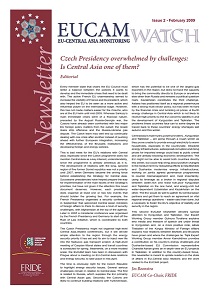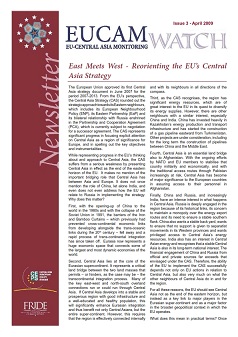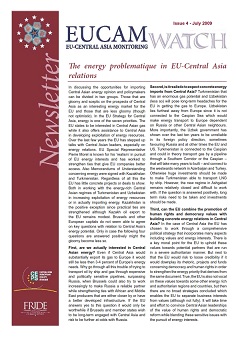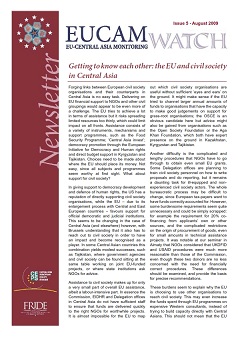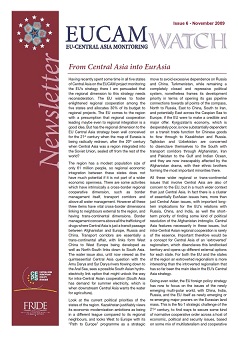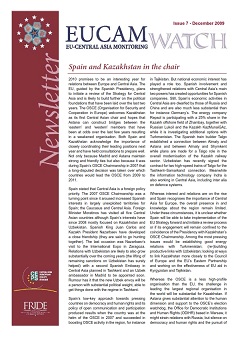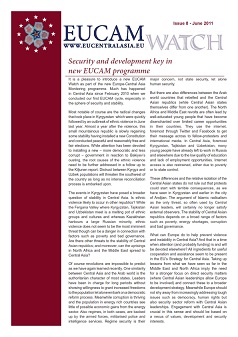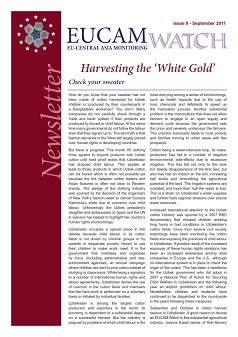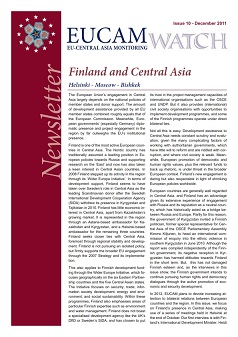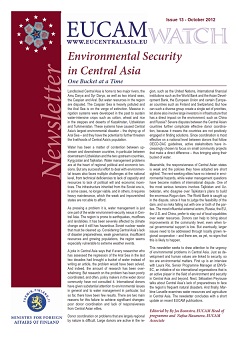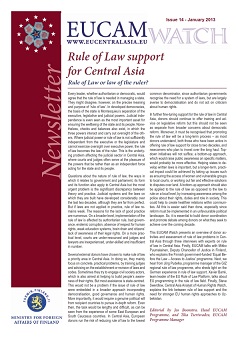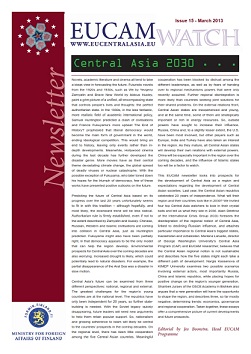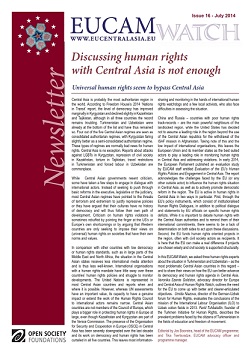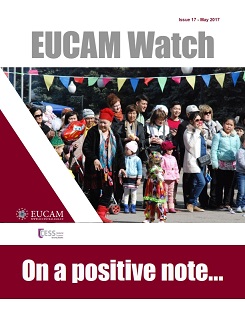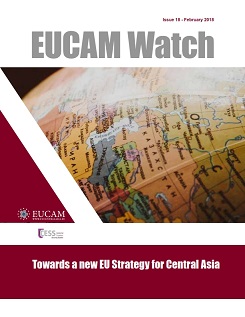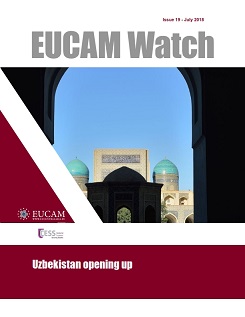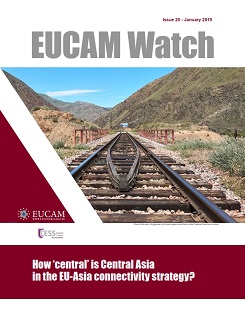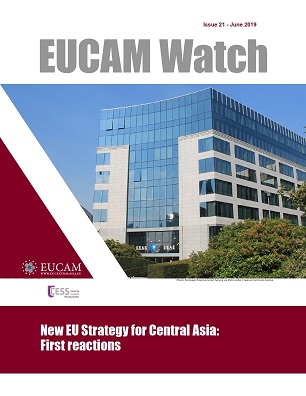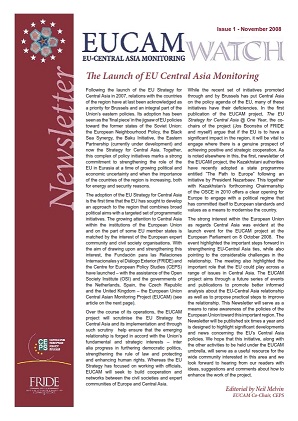
The Launch of EU Central Asia Monitoring
The Launch of EU Central Asia Monitoring
Keywords: European Union; EU Central Asia Monitoring; EU Strategy for Central Asia; EU's eastern policy; EU and Eurasia; Kazakhstan; Uzbekistan; human rights; security; border management;
Following the launch of the EU Strategy for Central Asia in 2007, relations with the countries of the region have at last been acknowledged as a priority for Brussels and an integral part of the Union’s eastern policies. Its adoption has been seen as the ‘final piece’ in the jigsaw of EU policies toward the former states of the Soviet Union: the European Neighbourhood Policy, the Black Sea Synergy, the Baku Initiative, the Eastern Partnership (currently under development) and now the Strategy for Central Asia. Together, this complex of policy initiatives marks a strong commitment to strengthening the role of the EU in Eurasia at a time of growing political and economic uncertainty and when the importance of the countries of the region is increasing, both for energy and security reasons.
More...
